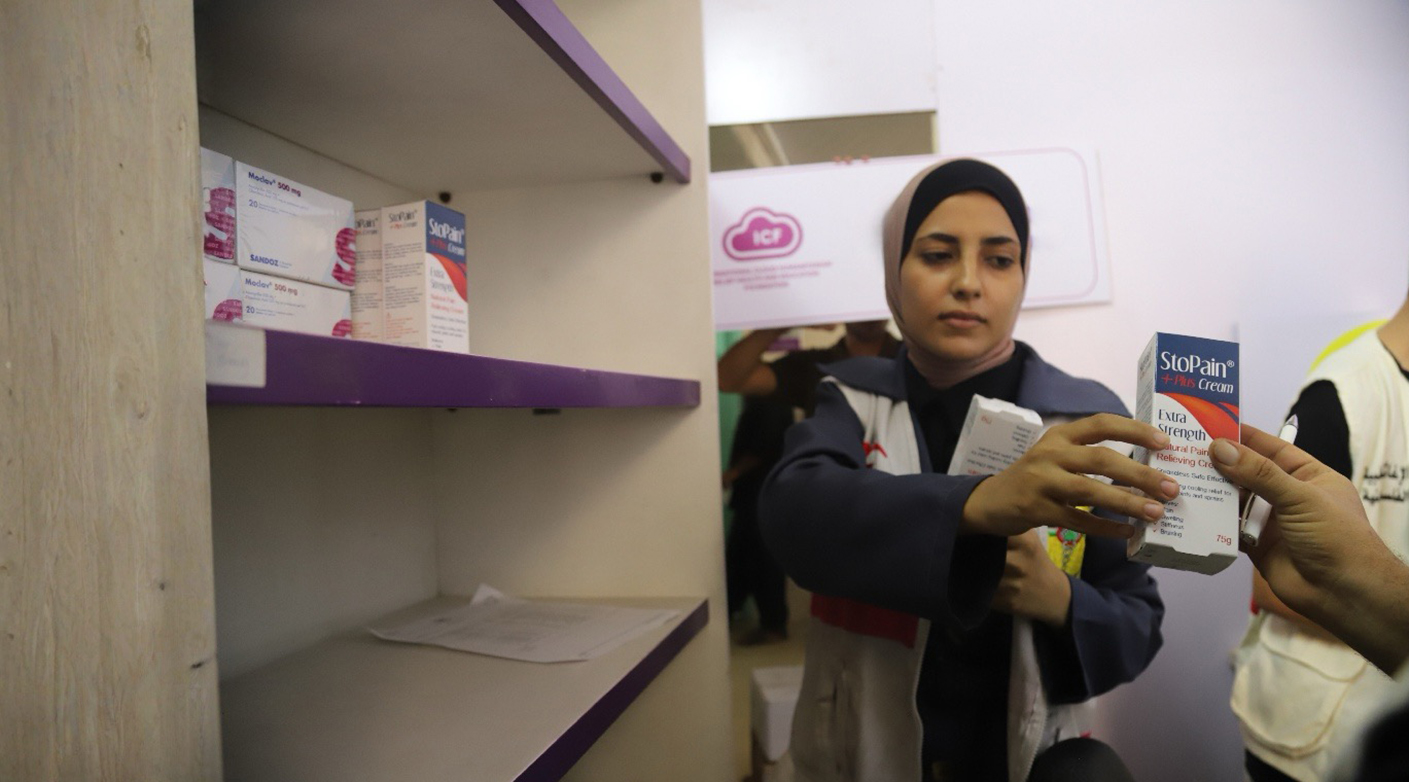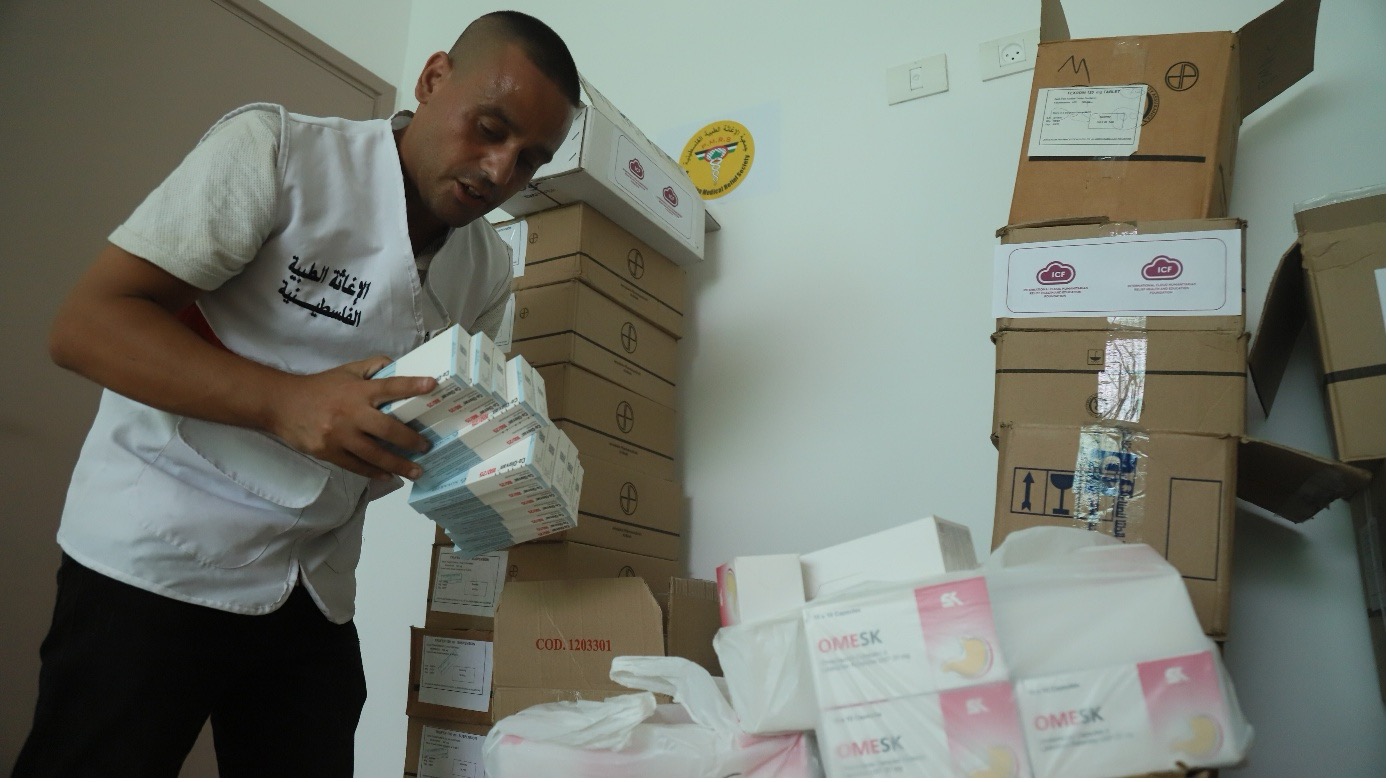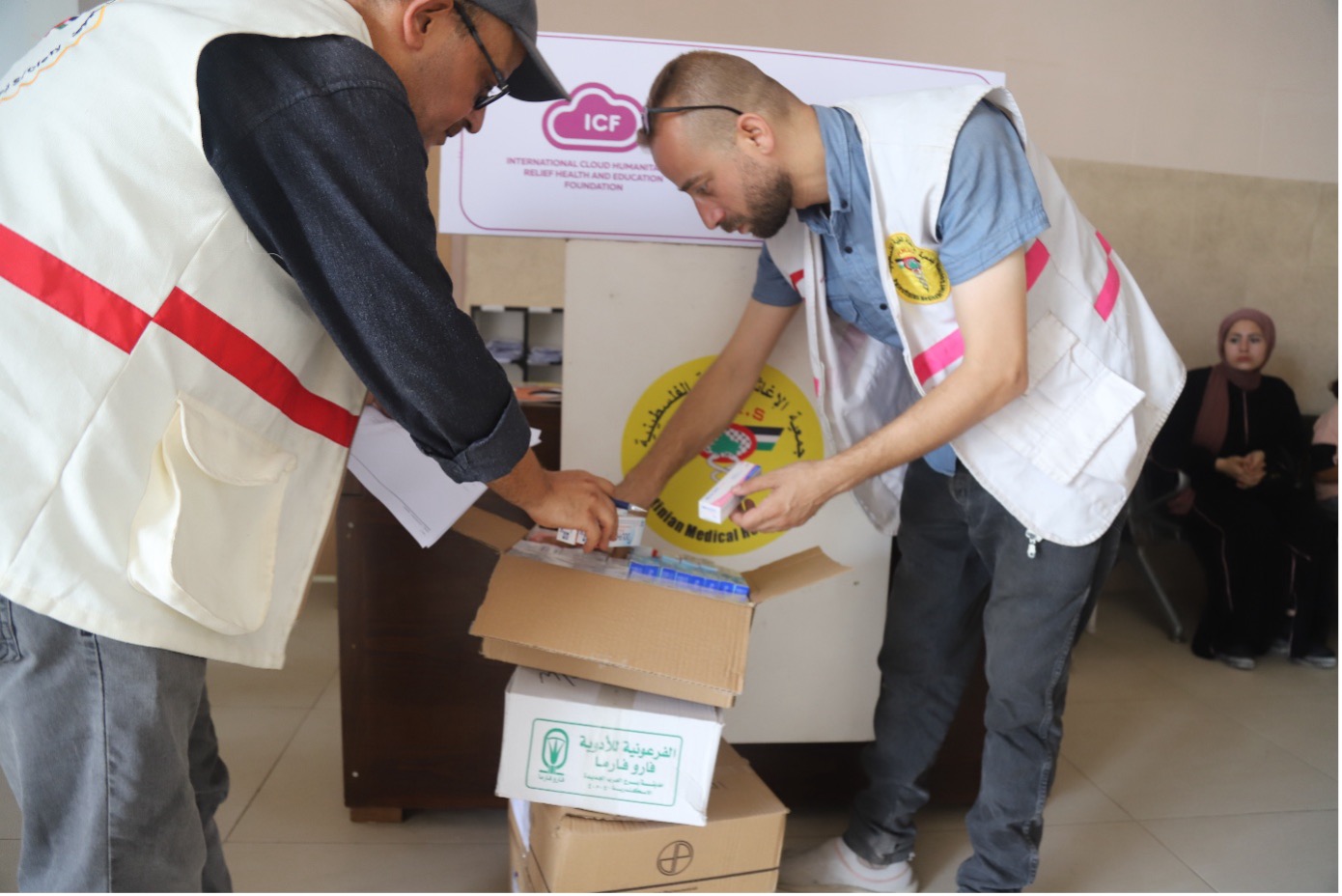News
ICF Supports Gaza’s Health System with Lifesaving Medicines and Medical Supplies
The International Cloud Humanitarian Relief, Health, and Education Foundation (ICF) has successfully completed its “Supporting the Medical Care System in Gaza Through Provision of Medicines and Consumables” project, providing vital medical support to communities struggling under one of the world’s most severe humanitarian crises.

For more than a year, Gaza’s healthcare system has faced near-total collapse due to the destruction of medical facilities, shortages of supplies, and restrictions on humanitarian aid. Hospitals and clinics have been operating under immense pressure, often without essential medicines, equipment, or power. Patients with chronic diseases, injured civilians, and children in need of urgent care have been the most severely affected.
In response to this dire situation, ICF implemented an emergency medical support project aimed at restoring access to basic and lifesaving healthcare services across the Gaza Strip. Through this initiative, essential medicines and consumables were procured and distributed to 25 medical centers and mobile health units operating in North Gaza, Gaza City, Middle Gaza, Khan Younis, and Rafah.
The supplies included treatments for chronic diseases, antibiotics, pain relief medications, maternal and child health products, and emergency trauma care items. These materials directly supported an average of 92,000 patients, helping health professionals stabilize conditions, treat infections, and manage long-term illnesses despite extremely challenging conditions.
The project also prioritized pregnant women, children, and patients with disabilities, ensuring that vulnerable groups continued to receive essential care. By working closely with local health facilities and community-based clinics, ICF helped to strengthen Gaza’s medical infrastructure and sustain healthcare operations at a time when they were critically needed.
Despite the operational challenges caused by damaged infrastructure and movement restrictions, ICF ensured that all deliveries were made safely and transparently. The intervention not only provided immediate relief but also reinforced local health system resilience by supporting ongoing medical care and emergency response capacity.
Through this project, ICF reaffirmed its commitment to preserving the right to health, supporting local medical actors, and delivering timely humanitarian assistance to those most in need.










